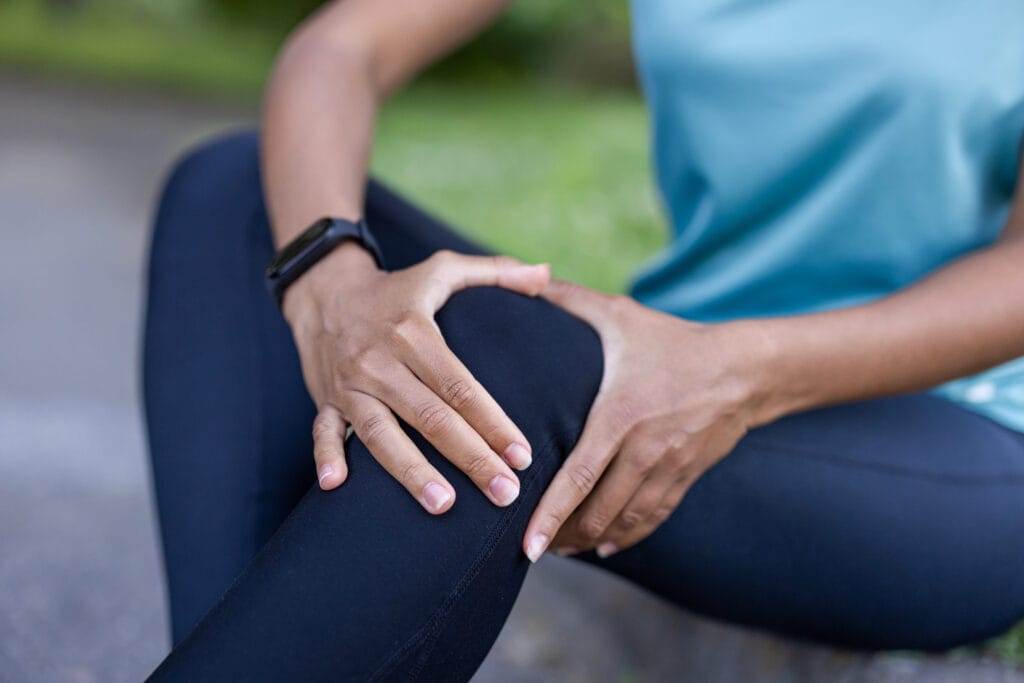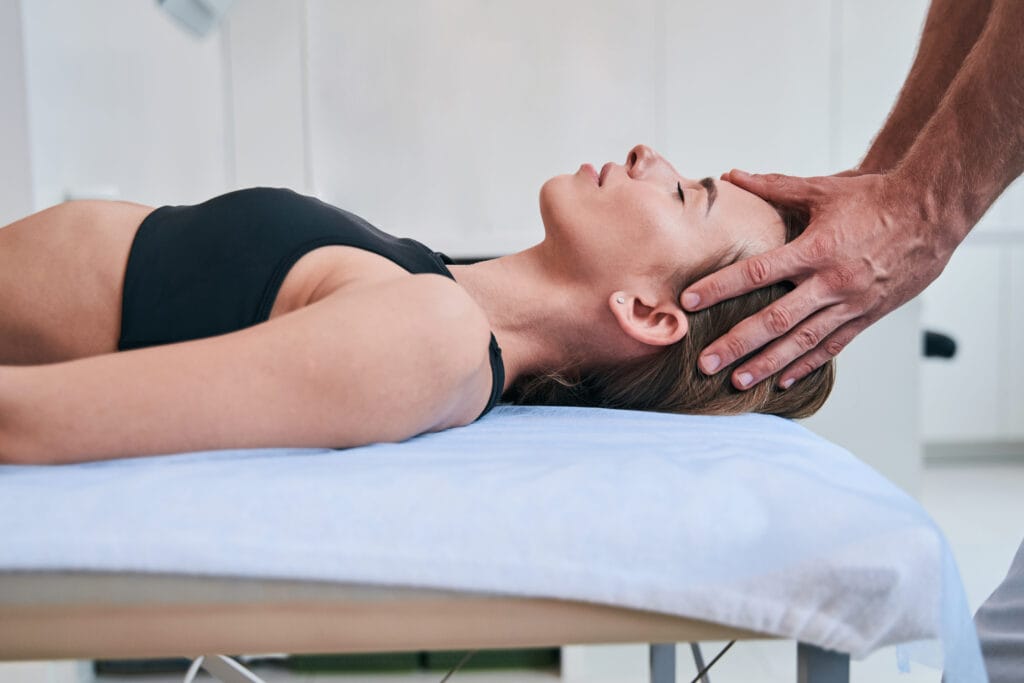What changes in our bodies during autumn and why does it matter?
Autumn is a season of transition. We're coming off long, bright months, where everything seems to expand. Suddenly, the days get shorter, the air becomes colder and drier, and nature begins to retreat. This same change occurs within us, although we often aren't fully aware of it, which is why we recommend Self-Care in Autumn.
At our center, we notice a repeating pattern every fall: energy levels drop, muscle aches become more frequent, digestion slows, and many people feel more emotionally sensitive or introspective. It's no coincidence.
In Eastern medicine, autumn is associated with the element of metal, which symbolizes the ability to let go of the unnecessary and retain the essential. Just like trees that lose their leaves, our body and mind also seek to purify, filter, preserve what is valuable, and eliminate what is no longer useful.
Self-care in Autumn: Renewal and Well-being. This is a perfect time to listen to your body. To adjust your rhythm and take care of yourself more consciously. Ignoring these changes can lead to burnout or imbalance. Listening to them, on the other hand, opens the door to a deep and restorative self-care routine.
Seasonal Signs: How Your Body Speaks to You in Autumn
“The body speaks, but sometimes we don't listen.” I repeat this phrase a lot in my sessions. With self-care in the fall and taking care of your well-being every day, the body tends to speak louder: the light changes, the temperature drops, our routines change, and all of this directly impacts our nervous, digestive, muscular, and respiratory systems.
Some signs that are repeated every year in consultation:
- Persistent fatigue, especially in the middle of the day. Very common in those who maintain the fast-paced nature of summer without adapting to the seasonal change.
- More intense muscle or joint discomfort, especially in the neck, lower back, and shoulders. The cold and low atmospheric pressure accentuate existing tension.
- Heavy digestion and more gas, a product of a natural digestive slowdown.
- Mild respiratory problems, such as mucus, nasal dryness, or a feeling of not breathing fully. Here, massages of the rib cage and diaphragm can be very helpful.
- Mild sadness or melancholy, what some call “vegetative symptoms.” The decrease in sunlight affects our internal rhythms.
When I detect these signs, the first thing I suggest is observe without judgingListen. Sometimes, with minimal adjustments, such as sleeping a little more or introducing conscious breathing, the improvement is noticeable. The body always gives a warning before it overwhelms us.
The importance of adapting your routine to the autumn rhythm
One of the most common mistakes I see every year is trying to live fall as if it were summer. Going to bed late, continuing to eat cold foods, maintaining a hectic schedule, then your body complains. It's understandable.
Adapting your routine doesn't mean doing less. It means doing just what's necessary, what's necessary, what's makes sense for this stage of the year. Fall asks us to slow down, recharge, and prepare for winter. And that requires a more introspective, nourishing, and restorative routine.
In my practice, I've seen that those who adapt their fall routines—sleep schedules, eating, exercise, and rest—not only avoid the typical "fall blues," but also enter winter with more energy, less stress, and a stronger immune system.
Rest as a foundation: sleep in tune with autumn
If there's one thing our bodies crave in the fall, it's more and better sleep. The nights get longer, natural melatonin production increases, but many people try to keep up with the summer rhythm, and that inevitably takes its toll.
In consultations, when people tell me "everything hurts," I often discover they're not getting enough rest. Without proper rest, no massage or therapy can work miracles.
Common changes in autumn sleep:
- Increased need for sleep, although we don't always recognize it.
- More nighttime interruptions, especially in people with anxiety or an overactive mind.
- More intense or restless dreams, a reflection of an over-saturated nervous system.
Advice I frequently give:
- Eat dinner early and turn off screens at least 30 minutes before bed.
- Do a self-massage on your feet and legs with warm oil.
- Use gentle essential oils like lavender or frankincense.
- Breathe and relax your jaw before sleeping.
- If you can't sleep, get up and do something relaxing (reading, breathing), instead of fighting insomnia.
Sleeping well in autumn is not a luxury, it is a powerful medicine.
Heat as therapy: thermotherapy and comforting massages
In the cold, the body tends to tense up. And not just because of the temperature: also because mobility decreases, posture changes, and certain internal defense mechanisms are activated. That's why, in autumn, the heat becomes a hpowerful therapeutic tool.
In consultations, I often begin the session by applying local heat with heat packs or warm oils. This alone is deeply relaxing.
Recommendations I give for home:
- Seed sack on the neck or lower back before sleeping.
- Hot compresses with essential oils (rosemary or lavender).
- Foot baths with sea salt or grated ginger.
- Self-massage with warm oil after showering.
Heat improves circulation, relaxes muscles, reduces the perception of pain and, above all, calms the nervous systemDon't underestimate its power. It's simple, but very effective.
Slow Movement: Self-Massage and Mindful Stretching
The body in autumn doesn't want to be challenged, it wants to be gentle. That's why I recommend replacing intense exercise routines with gentle practices: slow stretches, restorative yoga, conscious walks, self-massages.
In my experience, what helps most at this stage is:
- Cervical and trapezius self-massage with slow circular movements.
- Cat-Cow Spine Stretch, ideal for freeing the back.
- Plantar ball rolling, activates the fascial system and improves posture.
- Gentle leg stretches in bed, before sleeping.
- Abdominal self-massage, to improve digestion and reduce visceral anxiety.
Doing this in the morning gently energizes you. Doing it at night helps you let go. And if you accompany it with deep breathing, the benefits multiply.
Restorative nutrition: foods that harmonize with autumn
Although it's not my field of practice, after so many years treating bodies, I've learned to observe what happens when food doesn't keep pace with the seasons. In the fall, eating cold, raw, or excessive food causes tension, inflammation, and slow digestion.
That's why I recommend a diet more temperate, cooked and comforting:
- Homemade broths, vegetable creams, mild stews.
- Cooked fruits (apple, pear with cinnamon).
- Digestive spices: ginger, cumin, turmeric.
- Avoid cold dairy products, raw salads, or iced drinks.
- Drink warm infusions during the day (chamomile, fennel, anise).
And above all: eat slowly, chew well and breatheThe digestive system needs peace of mind to function. If you take care of it, your energy and emotional state will also improve.
Silence, breathing and presence: calm and nervous repair
We live in constant noise: stimuli, screens, demands. In autumn, this internal noise can overwhelm us more easily if we don't we look for real moments of pause.
Conscious breathing and silence are simple but profound tools. In consultations, I often begin sessions with a few minutes of guided breathing. The change it brings about in the body is immediate.
Techniques I recommend:
- 4-7-8 breathing: very effective for relaxing at the end of the day.
- Consciously touch your chest or belly, while breathing.
- Five minutes of silence without a cell phone, doing nothing.
- Walk slowly, feeling your body.
All of this activates the parasympathetic system, which is responsible for repair and balance. Practicing it at home improves your rest, reduces anxiety, and strengthen your emotional health.
Sensory care: comforting oils, textures and aromas
In autumn, the skin becomes more sensitive. The wind and cold dry it out, but there is also a greater need for touch, temperature and sensory containmentTaking care of these details isn't superficial, it's deep self-care.
What I always recommend:
- Warm vegetable oils for moisturizing: sesame, almond or arnica.
- Calming aromas: lavender, orange, incense (always well diluted).
- Soft textures in clothing and surroundings.
- Long, hot showers followed by self-massage.
In my practice, I take great care with the environment: warm lighting, soft music, and aromas that invite you to let go. This environment fosters connection with oneself, which is essential at this time of year.
When to see a professional: Signs that your body needs external support
Self-care starts at homeBut there are times when the body needs outside help. Every fall, I see cases where a seemingly minor discomfort turns into persistent pain or profound exhaustion. And many times, it could have been prevented with a timely visit.
These are some clear signs that your body needs professional support:
- Muscle or joint pain that does not improve with rest or self-massage.
- Intense stiffness upon waking, which limits your mobility.
- Constant fatigue, even if you sleep well.
- Very heavy digestion, with reflex lower back pain.
- Physical anxiety, bruxism, or chronic neck and jaw tension.
In these cases, seeing a manual therapist, osteopath, or wellness professional isn't a luxury; it's a necessity. Because the body has its limits. And when you listen to it in time, recovery is faster and longer-lasting.
Make autumn a season to reconnect with yourself
Autumn is not a season to demand more of yourself. It is an opportunity to let go, refocus, and reconnectNature does it: trees shed their leaves, animals adjust their rhythm, the light changes. And you can do it too.
After years of consultation, I assure you that the bodies that best experience autumn are those that allow themselves to listen and adjustThose who slow down, sleep more, eat better, take breaks, seek warmth, move slowly, and ask for help when they need it.
You don't need big changes. Just presenceA little more awareness of how you sleep, how you eat, how you move, how you breathe.
Make this season your ally. A time to take care of what's essential. To let go of what weighs you down. To reconnect with silence, with your body, and with what truly matters. Make this season your ally. A time to take care of what's essential. To let go of what weighs you down. To reconnect with silence, with your body, and with what truly matters.
In Quiroessence We believe that balance between body and mind is cultivated every day. Discover self-care in autumn. Learn to adapt your well-being to this transitional season and revitalize your energy. Our massage, osteopathy, and yoga center is located in the heart of Granada, just a five-minute walk from the Cathedral.
If you're looking for a space to take care of yourself, relax, and reconnect, we'd love to welcome you.

